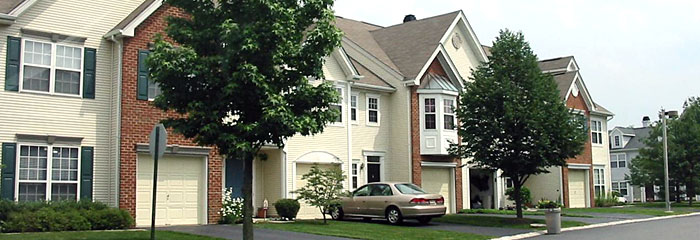Affordable Housing, Colts Neck
April 7, 2021
Affordable housing in Colts Neck has long since been a prolonged and controversial issue for the township’s residents and officials. It entails a very complicated process that Colts Neck Mayor Michael Viola described as a “time-consuming and expensive [task] often leading to additional litigation among neighboring townships.” However, to understand what has occurred thus far regarding this issue in the township, we must delve a little deeper into its proceedings.
Affordable housing is “housing that is sold or rented below the market price to individuals or families” that meet the requirements set by the national or local government. This allows moderate/low-income households to pay for a place of accommodation while still having enough money for living essentials and necessities (i.e. food, transportation, healthcare, etc).
Although there are a variety of methods that can be employed to address affordability, the most inclusive approach is by increasing the supply of housing units. This is ordinarily done by altering zoning rules to become more friendly to such expansions.
Housing affordability is often one of the top priorities that local governments concern themselves with. They must ensure that the residents of a community have access to decent housing. Maintaining economic diversity in neighborhoods and specific communities without unfairly removing citizens is also taken into account when deciding on affordable housing law.
A report published by the National Low Income Housing Coalition determined that the average housing wage – “the hourly wage a full-time worker must earn to afford a two-bedroom apartment while spending less than 30% of their income” – is more than the minimum wage worker makes. This means that these workers would not be able to afford either a one or two-bedroom rental unit in any state, based on Fair Market Rent (the estimated amount that a property in a given area typically rents for). In New Jersey, the housing wage is $24.92 per hour while the minimum wage is set at a meager $10.00 per hour. The disparity between the two wages is alarmingly substantial, and Colts Neck being a wealthier township means it is also among the least-affordable.
In order to qualify for affordable housing in Colts Neck, interested households must submit an application and income documentation. Whenever there is an available unit, households are randomly selected from the applicant pool by way of lottery and given accommodations. The pricing ranges from $100,000 to $165,000 and these include two-three bedroom apartments. According to the Colts Neck Township website, the maximum household incomes in relation to household size are as follows:
| 1 | 2 | 3 | 4 | |
| Low | $32,415 | $37,046 | $41,676 | $46,307 |
| Moderate | $51,864 | $59,273 | $66,682 | $74,091 |
Colts Neck Township has an obligation to provide opportunities for the development of affordable housing units within the community and to comply with affordable housing mandates. On March 18, 2020, Township committee members passed a resolution agreeing to settle issues with the Fair Share Housing Center, an organization that advocates for the construction of affordable houses throughout the state of New Jersey. The settlement agreement stated that Colts Neck would permit the construction of 1,280 new housing units, 1,051 of which would be sold at market price and 229 units would be allocated for affordable housing.
Unfortunately, it is also around this time when COVID-19 became a global pandemic. As Mayor Viola put it, “for almost five months most government entities were furloughed leading to significant delays across the spectrum.” Obviously, the affordable housing law was among many local government activities that were put on the back burner. The Township ran into more immediate issues such as unemployment, backlogs at the Registry of Motor Vehicles, etc. However, in July 2020 the wheels of government slowly began to turn once again as they adapted to the new circumstances.
Upon the settlement, the court scheduled a fairness hearing involving all the litigants to determine if the settlement presented a “real and fair opportunity for the development of affordable housing for the protected class of very low, low, and moderate-income level applicants.” This hearing was held in July, and the court ruled that the township’s settlement did do these things.
After the success of the fairness hearing, Colts Neck moved toward a completeness hearing. The township has to implement all the necessary ordinances and zoning changes that reflect the plan outlined in the settlement agreement. Mayor Viola says that “Colts Neck moved rapidly and aggressively into implementing the pertinent changes including seven ordinances that support the settlement.” However, there is still a lot of work to be done before a completeness hearing can be held. As of February 24, the hearing is scheduled for the second quarter of 2021.
Sources:
Email interview with Mayor Viola
https://www.colts-neck.nj.us/wp-content/uploads/2017/01/20170124_095219.pdf
https://www.vox.com/2014/4/10/18076868/affordable-housing-explained
